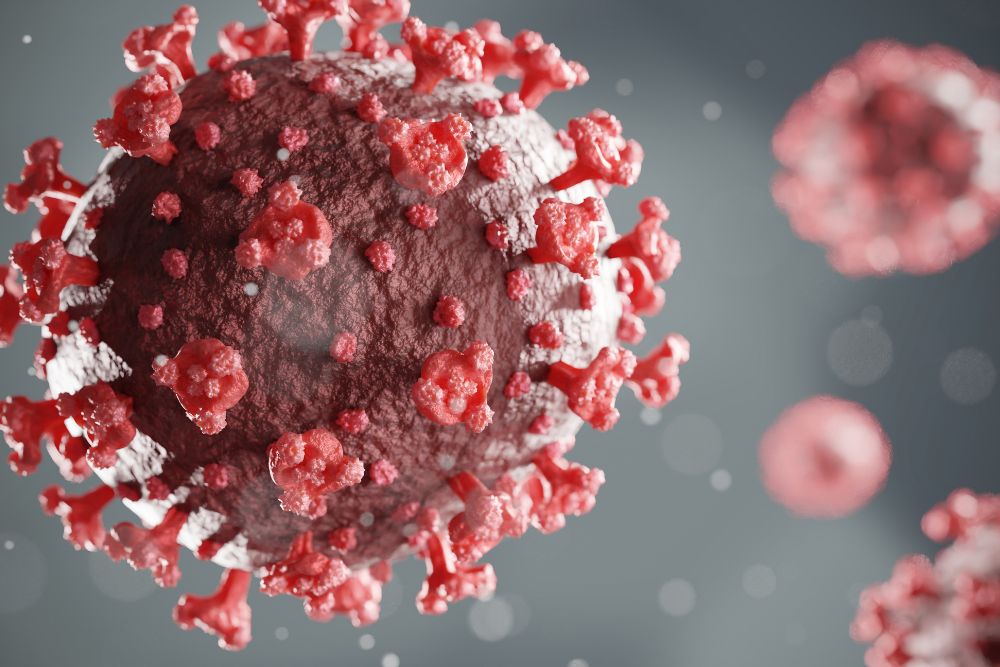When a new illness appears, it can often take years to learn the full extent of the effects it has on people. Likewise, it takes time to discover the various pre-existing conditions that may increase someone’s likelihood of contracting the disease or increase its severity.
We have been in this phase with COVID-19 for almost a year now. And every day brings new — and sometimes even contradictory — information.
First we shouldn’t wear masks. Then we should. Younger kids may be super spreaders. Or perhaps we don’t have to worry much about them at all. The vast majority of people recover just fine… but some experience lingering symptoms for months.
The list goes on. But there are two known phenomena that are starting to be taken very seriously by the medical community at large:
- the connection between COVID-19 and mental illness, and
- the struggles of “long-haul” COVID survivors — those people still struggling with lingering symptoms months after “recovering.”
How COVID-19 Impacts Your Mental Health — and Vice Versa
One of the early anecdotal connections was that people who survived COVID-19 were more likely to be diagnosed with mental illness. According to a recent study, not only is this true, but those with previously existing mental illnesses are also more likely to get COVID-19.
The study, conducted by researchers from NIHR Oxford Health Biomedical Research Centre and the University of Oxford, found the following disturbing connections:
- 20% of people who test positive for COVID-19 are diagnosed with a mental illness within three months.
- The most common mental illnesses presented were depression, anxiety, and insomnia. Thankfully, new psychotic disorders (for example, schizophrenia) were not found.
- People who have previously been diagnosed with a psychiatric illness were 65% more likely than those who had not to test positive for COVID-19.
In other words, people who get COVID-19 are more likely to develop a mental illness after they recover from it. And those who already suffer from a mental illness are more likely to get COVID-19.
The reason for the connection isn’t really understood. But the researchers found it significant enough to recommend that pre-existing mental health issues be added to the list of COVID-19 risk factors.
Moreover, it is becoming increasingly obvious that COVID-19 may cause a mental health crisis in addition to the physical health crisis we’re already experiencing.
Whether or not you have already been diagnosed with a mental illness, this is yet another factor that needs to be considered when making decisions that could impact your health. And if you become debilitated due to COVID-19 and end up later getting diagnosed with a psychological condition, this research could help in solidifying the connection and getting you the benefits you need to treat every aspect of your health.
The Physical Trials of Long Haul COVID Survivors
Since the early spread of the virus, there have been a number of anecdotal stories of people who “recovered,” but are still suffering from serious, lingering symptoms that have left them debilitated for months on end.
NPR has done several reports on this phenomenon. But it wasn’t until the first week of December that the federal government finally held a conference on long-term COVID-19, with medical professionals, public health officials, and patients all calling for the condition to be taken seriously and labeled as a syndrome.
What do so-called “long-haulers” find themselves having to deal with? It varies from person to person, but most complain about some combination of:
- Breathing problems
- Fevers, headaches, and bouts of nausea that come in waves
- Heart issues
- Difficulty thinking or processing information
- Mental or emotional struggles
Perhaps the worst part, though, is that long-haulers are typically told that they are only suffering from mild cases of COVID and that they essentially need to try to recover on their own. Many have even faced skepticism from doctors that they are actually suffering from the virus.
All of this is obviously very new, and even the experts are still trying to figure it out. But if you are facing ongoing physical, mental, or psychological impairment due to having contracted COVID-19, it is important that you document everything and continue to seek medical help. And if your impairments prevent you from working, you may qualify for Social Security disability benefits.
Have questions about your eligibility? Get in touch with the Feingold Law Office today.







